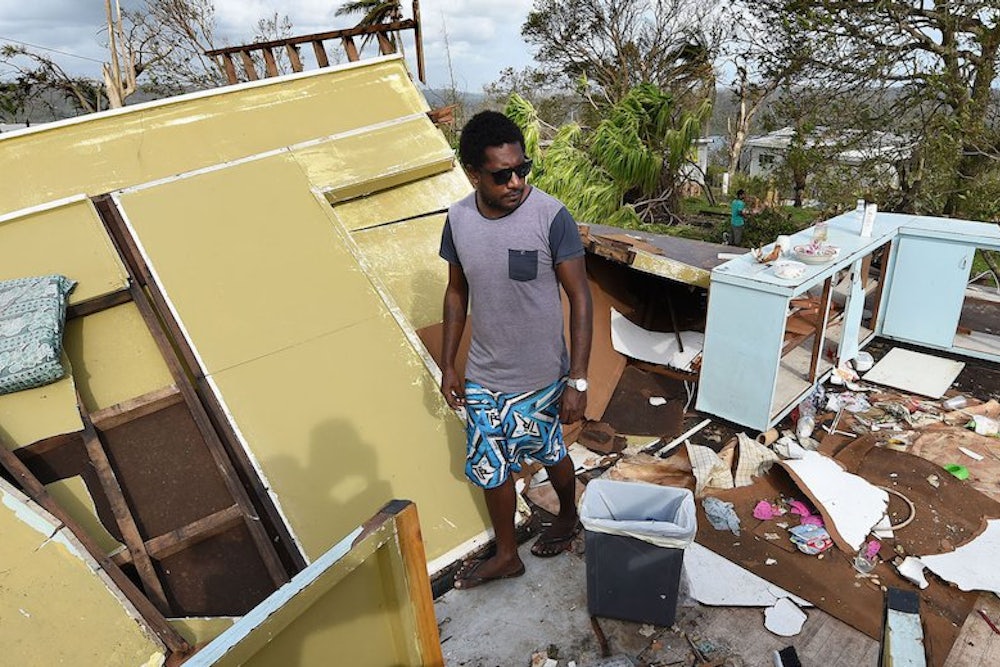Over the weekend, Cyclone Pam—a category 5 storm—slammed into the small Pacific island nation of Vanuatu. The storm flattened homes and hospitals across the 82-island archipelago, which has a population of just 267,000 people. One UNICEF worker said that the area looked like it was “hit by a bomb”; it’s been estimated that 90 percent of the buildings and homes in Vanuatu’s capital were destroyed.
“All I can say is that our hope for prospering into the future has been shattered,” Vanuatu President Baldwin Lonsdale said. “All the development that has taken place has been wiped out,” he said, according to another report. Lonsdale gave his remarks from Japan, where he was attending a conference on disaster risk and reduction.
Several countries, including neighboring Australia and New Zealand, have pledged funding to help rebuild. But Vanuatu’s politicians and other island nation leaders are begging the world for something Australia and others are far more reluctant to promise, which is action on climate change.
“Climate change is contributing to the disasters in Vanuatu,” Lonsdale said. The relationship between climate change and cyclones is more complicated than Londsale described, though he isn’t wrong to talk about the connection. Sea level rise raises the risk of flooding, while warmer ocean temperatures give rise to more intense storms. “Globally it is most likely that the total number of tropical cyclones will decrease with climate change while the number of the most intense storms, like Pam, will increase,” Chris Holloway, a tropical storm expert in the United Kingdom, told The Guardian.
The destruction in Vanuatu shows the future for other coastal, low-lying nations. It’s a grim picture. There are two things the rest of the world can do to help: Cut carbon emissions and contribute funds to build resilience against the destruction. The effects from climate change are already visible, and the world's only hope to reduce the risk of future disasters is by curbing pollution now.
